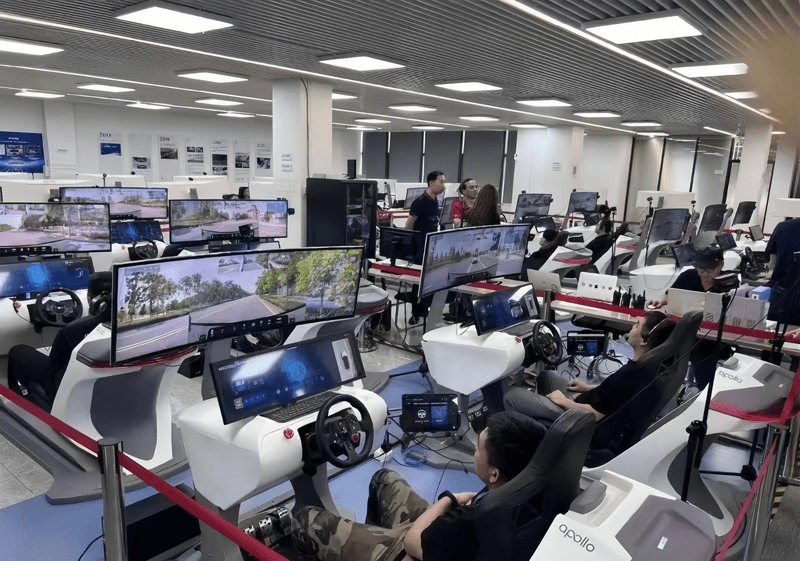San Francisco, July 21, 2024 (GLOBE NEWSWIRE) -- PublicAI, an AI company based in the Bay Area that provides AI training data service with blockchain technology, aims to provide new jobs for humans post-singularity, launched the test version product and attracted half a million users within four months according to on-chain analysis platform Dune. https://dune.com/publicaiweb3/publicai-dashboard

The platform uses cryptocurrency to incentivize data workers to contribute and annotate data to fix surging demands from various industries in artificial intelligence. PublicAI’s stake-slash and consensus algorithm guarantee the data quality. Take TTS(Text-To-Speech) as an example, most non-English languages still perform poorly and require huge pairs of training data for optimization. The data workers could contribute such data on PublicAI by finishing tasks: given a particular text, workers should use a specific language and emotional tone to speak it. Then the multiple on-chain validators will verify the correctness. The rewards will be distributed once on-chain consensus is researched.
https://youtu.be/V3qbKkxaM30
If Al takes over all jobs, what will humans do?
The rapid advancement of artificial intelligence (AI) is transforming industries and raising profound questions about the future of work. Elon Musk and other tech visionaries have discussed a future where AI's capabilities far surpass human abilities in virtually every field, potentially leading to a jobless society. Goldman Sachs projects that AI could increase global GDP by 7% over a decade, yet it might displace millions of jobs in the process. However, the truth is that AI will create more new jobs, just like in the last century. According to MIT’s David Autor, 60% of jobs in 2018 were in types of employment that did not exist before 1940. This highlights the dynamic nature of employment as technology evolves, but as AI capabilities advance, we must consider more radical shifts.
https://academic.oup.com/qje/article/139/3/1399/7630187?login=false
The Evolution of Human-AI Relations in the Next 100 Years
PublicAI’s founder Dr. Steven Wong illustrates the human and AI relationship over the next 100 years through four distinct stages:
- Creation of Intelligence by Humans (1986-2022): During this period, humans developed AI by experimenting with new algorithms and leveraging advanced equipment like GPUs.
- Weak Intelligence Assisting Humans (2015-2035): AI assists humans in various tasks, significantly enhancing productivity and efficiency. Currently, we are in this stage.
- Strong Intelligence Corrected by Humans(2023-2050): In this stage, humans primarily provide feedback and corrections to AI systems, ensuring they operate within ethical and societal norms.
- General Intelligence with Minimal Human Tuning (2050-2100): General AI systems will operate with minimal human intervention, but humans will still be needed to ensure AI aligns with human values and ethics.
These stages have overlapping transition periods where both humans and AI collaborate more closely.
The Emergence of New Roles
As AI takes over more jobs, the role of humans will evolve. Humans still play an important role in improving AI's knowledge and aligning its behavior with human values:
AI Trainers: Encompassing training data workers and some research engineers, these professionals ensure that AI systems learn from high-quality data and continuously improve.
Prompt Engineers: Specialists who craft precise and effective prompts to guide AI systems in generating desired outputs.
AI Feedbackers/Correctors: Professionals who provide nuanced feedback and corrections to AI systems, ensuring they operate within ethical boundaries and societal norms as known as reinforcement learning from human feedback(RLHF).
AI Ethics Officers: Professionals who ensure that AI systems adhere to ethical guidelines and societal values.
Regulatory Roles: Professionals who oversee the deployment of AI technologies, ensuring compliance with legal standards and societal expectations.
AI Safety Engineers: Specialists focused on ensuring that AI systems operate safely and predictably, preventing unintended consequences and mitigating risks.
The Future Job of the Driver After Singularity
Apollo's self-driving laboratory as known as ‘luobokuaipao’ employs human drivers as correctors who sit ahead of driving simulators to monitor and supervise each self-driving car operation. When the algorithm goes wrong, humans intervene to make corrections and provide feedback to allow AI to learn and further improve future driving strategies, which is only the tip of the iceberg.
The potential for AI to take over all jobs presents challenges and opportunities. While there may be short-term disruptions and ethical dilemmas, the long-term vision includes a society where humans are freed from mundane tasks, leading to increased creativity and societal well-being. By proactively addressing these changes, we can ensure that technological advancements benefit all of humanity.
CONTACT: Steven Wong contact@publicai.io
